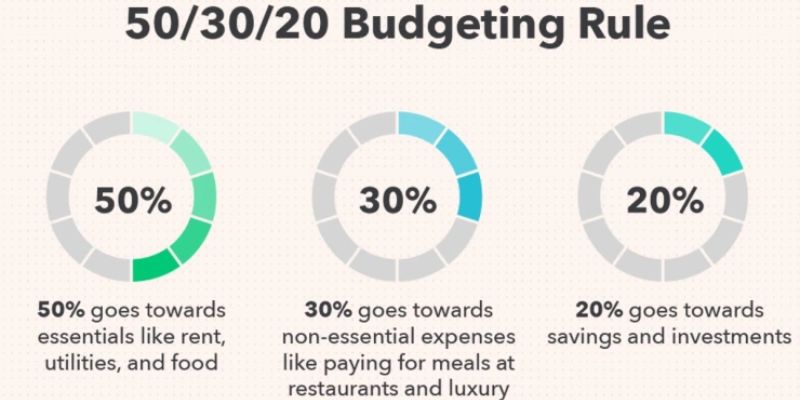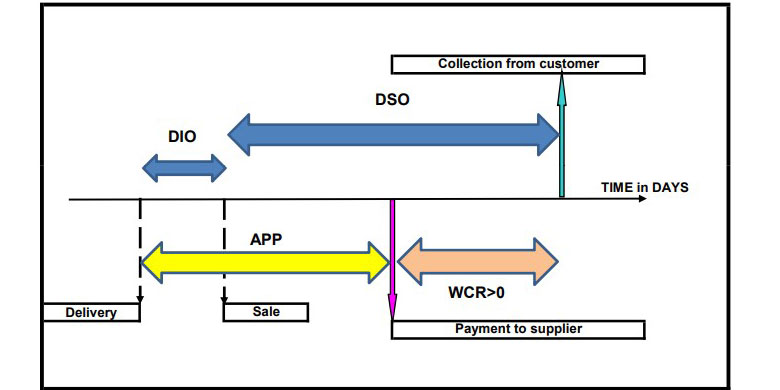How much should you realistically allocate for rent each month? It's a tricky question, as many factors need to be considered, like your location, income, lifestyle priorities, and budgeting strategy.
In this blog post, we'll look at all these variables to help you decide how much of your hard-earned money goes towards the roof over your head. So if you're looking for guidance on where to draw the line when spending on rent, read on!
How much should you spend on rent? Try the 30% rule
The 30% rule is a good place to start regarding budgeting for rent. The Rule suggests you spend around 30% of your monthly gross income on rent. Therefore, if you make $3,200 per month before taxes, you should budget for about $960 in rent payments each month.
However, this is a relatively easy and fast rule. You may find much lower rents than 30% of your income in some areas where the cost of living is more affordable.
On the other hand, if you live in an area such as New York City or San Francisco where median rents top $2,000 per month for a one-bedroom apartment, according to Apartment List data from November 2022, you may have to allocate much more than 30% of your income to rent.
When budgeting for rent, it's important to consider location and lifestyle priorities. Consider other apartment renting costs, such as security deposits, application fees, and monthly utility bills.
Additionally, ensure that the amount you spend on rent leaves enough room in the budget for other essentials like groceries or transportation costs.
Work Out How Much Of Your Income Should Go To Rent With the 50/30/20 Rule

Regarding budgeting, the 50/30/20 Rule can be a great way to determine how much of your take-home income should go towards rent. This method suggests allocating your post-tax salary into three categories: needs (50%), wants (30%), and savings (20%).
For example, if you're earning $3,200 after taxes each month, then according to this Rule, you should allocate up to $1,600 for needs such as rent, utilities, groceries, and insurance; $960 for wants like shopping or going out; and $640 for savings or additional debt payments.
Therefore, rent should account for at most 50% of your monthly income. However, this amount can be adjusted depending on your circumstances. For instance, if you're living in a high-cost area like New York City or Los Angeles, lower the amount allocated for wants and increase the budget for rent accordingly.
Figure Out How Much You Can Afford To Spend On Rent

When deciding how much to allocate for monthly rent, it's important to factor in all your expenses and income. Looking honestly at the numbers can help you determine an amount that works within your means while still accounting for lifestyle priorities.
Let's say you have a monthly income of $3,200. If you have a lot of needs-based expenses, such as student loan payments, car payments, car insurance, and groceries, then you may only be able to afford a little when it comes to rent. For example, if these four categories total $950 per month, that leaves just $650 for rent and utilities. This budget may work out fine in cities with inexpensive rents like Lake Charles, Louisiana (median one-bedroom rate of $641).
However, in pricier markets like Cincinnati, Ohio (median one-bedroom rate of $829/month), you'll have to find ways to cut back on other expenses or look for more budget-friendly housing options. Rather than relying on a general rule of thumb guideline (like spending 30% of your income on rent) that doesn't consider individual needs and budgets, it can be helpful to add up all other expenses and identify potential savings opportunities to help determine a realistic rent budget. For instance, carpooling or public transportation can reduce monthly bills if you want an affordable yet comfortable living place. Additionally, cutting back on dining out or shopping can free up extra money for rent.
Factor In Other Costs
When calculating how much to allocate for rent each month, it's also important to factor in other costs associated with your rental. Here are a few things to consider:
- Utilities: Depending on your area and the type of residence you live in (apartment, single-family home, etc.), certain utilities may be included in your monthly rent or require additional charges. Make sure to ask about this beforehand so you can plan accordingly.
- Deposit and Move-In Fees: Most landlords will require a deposit before you move into a new place, as well as fees for processing paperwork and cleaning up afterward. Be sure to get an estimate from the landlord regarding these costs before signing any contracts.
- Maintenance Fees: Additional fees may be associated with building upkeep and repair if renting a condo or other non-single-family residence. Ask about these in advance so they don't come as an unwelcome surprise later.
- Pet Rent: If you have a pet, some landlords require an additional fee for keeping it on the premises. Be sure to check if this is required before signing any contracts.
By considering all these factors when deciding how much to allocate for rent each month, you can ensure that you're not getting in over your head and creating financial stress down the road.
Look for savings
When determining how much to spend on monthly rent, it's important to consider all your expenses. While rent is a major expense, there are other areas of your budget where you can also save money.
- Utilities: Even in this modern age, we all need electricity and gas for our homes. Try to conserve energy by turning down the thermostat when no one is home or unplugging appliances when not in use. You could also contact your utility provider and ask if they offer any discounts or payment plans that can help reduce the overall cost of utilities.
- Insurance: Homeowners insurance isn't required in some states, but most lenders require it if you have a mortgage. Shop for the best rates; don't be afraid to haggle when talking to your provider.
- Groceries: Even small savings on groceries can add up over time. Look out for deals at your local grocery store or take advantage of online ordering and delivery services, which often have lower prices than in-store purchases.
- Rent: Take a good look at your budget and consider what you can realistically afford when renting each month. Talk to potential landlords about any incentives they may offer, such as price breaks if you sign a longer-term lease agreement or rent payment plan options that spread the cost over several months.
FAQs
Is spending 50% on rent too much?
It depends on your situation and budget. If you have a lot of other expenses, including student loan payments, car payments, and groceries, then lower the amount allocated for rent accordingly.
How can I save money on rent?
Shop around for good deals and negotiate with potential landlords. Sometimes, they may offer incentives such as price breaks or payment plans that spread the cost over several months.
Is $900 too much for rent?
It depends on your area and other expenses. If you already pay many other bills, such as student loans and car payments, then $900 may be too much for rent.
Conclusion
When deciding how much of your hard-earned money goes towards rent each month, it's important to look at all your expenses and income, considering factors such as location and lifestyle priorities. By understanding the full financial picture and remaining mindful of your spending, you'll be able to find a balance that works best for you. Additionally, look for savings opportunities in other areas of your budget, such as utilities, insurance, and groceries.




